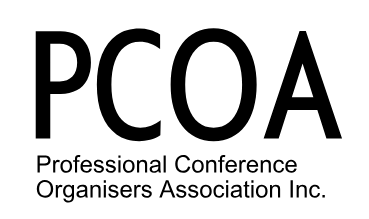Certification
PCOA Certification is a set of standards established by and for the PCOA and its members.
The PCOA Certification Programs provide individuals and businesses with a set of standards that are recognised as the minimum standard level of service and business practices.
Certification provides clients and industry with an assurance that the event manager and or event management business they are dealing with is committed to the highest quality event management business practices, consistency and reliability in the delivery of services, professional standards and dedication to continuous improvement.
Karen Sainsbury, NSW PCOA Councillor, and Managing Director of Cornerstone Events explains the types of certification available as well as tangible benefits in being accredited individuals or companies in the following webinar.
What is PCO Certification?
PCO Certification is a set of standards established by and for the PCOA and its members.
The PCOA Certification Programs provide individuals and businesses with a set of standards that are recognised as the minimum standard level of service and business practices.
Why do we need Certification?
Certification provides clients and industry with an assurance that the event manager and or event management business they are dealing with is committed to the highest quality event management business practices, consistency and reliability in the delivery of services, professional standards and dedication to continuous improvement.
How are the Certification Programs promoted?
The benefits of working with and using certified members will be promoted to:
- Convention Bureaux and other associations, both domestically and internationally
- The consumer market via email and industry print media in Australia and New Zealand
- PCOA Certified Members are listed on the PCOA website.
What types of Certifications are available?
Certified Event Manager (CEM) is the peak professional standard for event managers. Certified Event Company (CEC) is the peak professional standard for event companies.
CEM certification is based on a combination of quantitative and qualitative assessments of education, industry qualifications, experience and quality of delivery.
CEM certification is offered across the various membership types with varying certification criteria for each member type.
For a company to be awarded CEC certification it must have a minimum of one CEM employed in the business and additionally satisfy certain other criteria.
Company certification (CEC) varies according to the type of business services that the business offers – for example the criteria for an association type business will vary quite dramatically to the criteria required for a corporate type business particularly in the area of revenue and expense handling and the operation of bank accounts.
Why have Certification for Companies?
Certification as a corporate sector CEC provides clients and industry with an assurance that the event management business they are or could be dealing with is committed to the highest quality event management business practices, consistency and reliability in the delivery of services, professional standards and dedication to continuous improvement.
Without company Certification, if an individual business owner, who is certified, sells their business, then the certification recognition leaves that business with the individual.
The business may still retain all of its systems and procedures, including recognised quality certification, however it will no longer have any event management certification.
This situation may result in adding to difficulties in selling an event management business on the open market or gaining further business in the future.
Which companies can attain CEC Certification?
Any company whose primary role in business is based around conference and event management can apply for CEC Certification provided it has a minimum of one Certified Event Manager (CEM) employed in the business and additionally satisfy the following criteria that are audited by an independent certified practising (CPA) accountant.
- Evidence of business procedure and processes manual.
- Evidence of quality assurance systems.
- Evidence of computerised conference/event registration management system.
- Evidence of financial management systems and procedures.
- PCI compliance
- Certificate of business registration.
- Copy of the annual ASIC statement of solvency.
- Copy of standard contract of services provided to clients
- Copy of professional indemnity insurance policy and certificate of currency.
- Copy of public liability insurance policy and certificate of currency.
- Fair Work compliance
- Copy of standard engagement letter and engagement contract.
- Copy of the company’s Disaster Recovery Plan.
- Copy of Risk Management Plan for conferences & events.
- PCI compliance
- And other criteria as detailed on the application form
This criteria is subject to an ongoing audit every three years in order to maintain certification.
The process for obtaining Certification
The Certification application forms for both individuals and businesses are available via the PCOA website.
All applicants must firstly be a current PCOA member to apply.
How long does the application process take?
Individual CEM applications will be processed within 30 days.
CEC applications will be processed within 60 days.
Once an application is approved an official certificate will be issued as an email attachment and will be valid for a period of three years.
Certified individual members and certified business members details will be listed on the PCOA website.
Certification logos will also be issued.
How long does Certification last?
Certification for CEM and CEC are for a period of three years, after which time the individual or business need to apply again to maintain their certification.
If a CEC loses its sole remaining CEM, then that CEC will be required to relinquish its CEC status until the business has another CEM in its employ.



